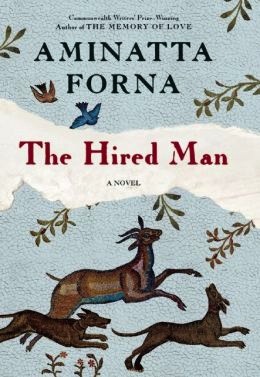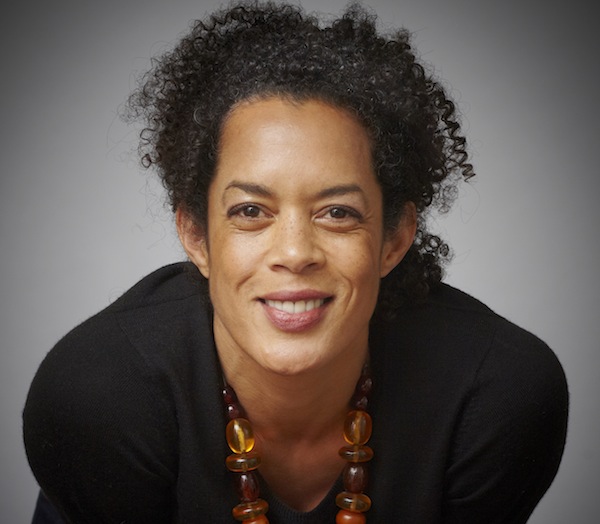Book Review: “The Hired Man” — A Powerful Novel about the Aftermath of War
Aminatta Forna has given us a novel that belies its modest premise, a book about how the human mind protects itself by not knowing, yet sometimes, due to unexpected circumstances, comes to terms with what it thought it could not.
The Hired Man, by Aminatta Forna, Grove, 304 pages, $24.
By Roberta Silman
Although she is very young — born in 1964 of a Scottish mother and an African father — Aminatta Forna’s major fictional theme is the effects of the brutality of war. Two years ago I reviewed her second novel The Memory of Love here in The Arts Fuse; in it she examined characters plagued by PTSD in an unnamed African country very like Sierra Leone. Her canvas was large, there were three main characters and a host of minor ones, and she moved from place to place with ease and managed to weave all the strands, told in the third person, in a masterly way. It was a very ambitious book, and I admired it enormously, yet, in the end, felt as if its impact was somewhat undercut by her ambition.
In The Hired Man Forna, who is now teaching at Williams College, has chosen to write a “smaller” novel in terms of characters and setting, yet in some ways she has created a bigger book than The Memory of Love. For here she concentrates on Duro Kolak, the hired man, who tells us his story as if he were narrating the events of one summer to the grandchildren he may or may never have. Thus Forna achieves an intimacy that, for me, is always the mark of a wonderful novel; moreover, the beginning of the volume pulls the reader into a story that seems at first so harmless that there were moments I felt as if I was being lulled into a familiar love story. Thus the surprises to come achieve a rare resonance and become absolutely inexorable by the end.
A writer friend of mine claims that there are only two stories in the world, when someone leaves home to go on an adventure and when a stranger arrives in town. The Hired Man falls into the latter category. When Duro sees a strange car parked near what is known in Gost as “the blue house,” he realizes the house has been sold and stops to see if there is work, for since his return to his native town he has lived very independently doing odd jobs. Sure enough, an Englishwoman named Laura has come to Gost, which sounds like “ghost” and means visitor (both meanings apply) and whose exact location remains a mystery but is not far from the Croatian coast. Gost is a tiny town of breathtaking beauty surrounded by hills and meadows of wildflowers and a river and falls. When Laura arrives with her two children, Matthew and Grace, her mission is to fix up the house she and her second husband, Conor, bought a few years ago. Then they plan to sell it and buy other houses to sell to English friends and acquaintances who are looking for vacation homes in a gorgeous new place.
Laura is attractive and generous and grateful to Duro for coming every day to restore their new home. Matthew is bored out of his mind without wifi and his friends; moreover he is furious at his mother both for marrying again and bringing him to this godforsaken, even if beautiful, place. Grace is awkwardly on the cusp of adolescence but still young enough to be curious about everything, especially the house which seems to be yielding up its secrets as Duro strips off the outside plaster. When Grace discovers the mosaic hidden in the front of the house, her goal for the summer becomes clear. As the days pass, they all become attached, each in his/her own way, to Duro who lives so simply — who can fix anything and seems absolutely content living a very simple life, exercising each day, working on their place, and going hunting with his dogs, Kos and Zeka. Never realizing that this restoration project is not as harmless as it seems.
And never knowing that working on the blue house has awakened in Duro memories that he thought he had successfully repressed. Here is one of his first, one that gives the reader an idea of who this man was as a boy, when he had every right to expect a normal childhood:
For two days my thoughts had been crowded by memories of Kresimir and of Anja. It felt as though I had been lifted up and set back in that time, the events of which I’d found away to live with. I’d had no choice, none of us had, though some were better at it than others. Now I remember how here, where the ravine meets the pine trees, we’d seen our first boar.
Anka, wearing yellow pop sox, stands upon a rock, showing off her balance: on tiptoe, her arms above her head, like a dancer in a musical box. Slowly she extends one leg behind her, an arm in front. She is wearing a yellow skirt which matches her socks and it ruffles in the breeze; otherwise she is impressively still. I have opened my mouth to cheer, when I see her expression and follow her line of sight to the first row of trees. There, in the no man’s land of shadows and sunlight, a boar: huge. Slowly I raise my gun and take aim. I miss, thank God, because the gun is a pea shooter and would doubtless only have made him mad. The bullet ricochets off a tree. The great beast shudders, regards us a moment longer and is gone. Anka jumps off the rock and into my arms.
We walk home exultant. Nobody bothers to mention that I really shot a tree and not a boar. Kresimir and I are fourteen and Anka is ten. The year is 1975.
But slowly, and with great authority, Forna creates an uncanny tension in this seemingly quiet story so that as you read, it is as if you are in Duro’s mind as his memories surface, and you realize you caught in a complicated fugue. On the one hand is the present, in which Laura and Matthew and Grace and Duro draw closer and in which the English contingent has no idea what they have unearthed by fixing up the blue house because Duro is so protective of them and so skilled in deflecting the hostility of his fellow villagers. A present filled with the normal human emotions of anger and forgiveness and humor and sometimes exasperating affections (like Laura’s for her children, for she is snookered by Matthew and oblivious to Grace’s needs), but which also begins to evoke the past in potentially dangerous ways.
And then there is the past, which begins with Duro and Anka’s story, yet is not merely a narrative about two kids falling in love and a boy sent away in exile, then maturing, and finally returning, but a past whose legacy is a war of unspeakable atrocities and tragedies that can never be resolved. The second half of the book is much denser than the first half, detailing siege and deaths and endurance and courage and mistakes beyond all belief. While you have to read carefully to follow the transitions, you may also find yourself having to stop and breathe because what is being revealed is so painful to absorb. Yet Forna has made the aftermath of the Croatian war her own, in fiction that is heartfelt and moving and in prose at times so magical, that you, too, feel “lifted in time.”
By focusing on this one man Duro (whose name may be a play on all he has endured), Aminatta Forna has given us a novel that belies its modest premise, a book about how the human mind protects itself by not knowing, yet sometimes, due to unexpected circumstances, comes to terms with what it thought it could not; how it finds memories that can, if they are strong enough, create a way to balance the horrors of war, and that can lead, amazingly, to hope. She has made the aftermath of war her special subject, yet is undaunted at the challenge it presents. In closing I am reminded of what an Englishman once said to me: “Living through the war was not the hardest part, it was the day the war ended that the hardest part began.” And also of that unforgettable quotation I pulled out of The Memory of Love two years ago: “Only fools . . . think that love is for the living alone.”
Roberta Silman is the author of Blood Relations, a story collection now available as an ebook; three novels, Boundaries, The Dream Dredger, and Beginning the World Again; and a children’s book, Somebody Else’s Child. She writes regularly for The Arts Fuse and can be reached at rsilman@verizon.net.



